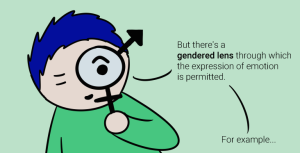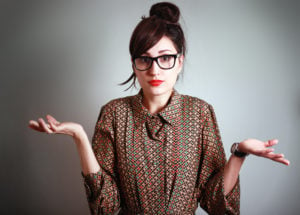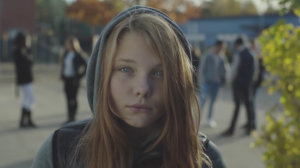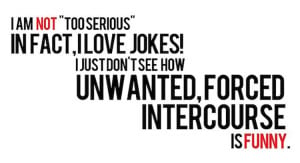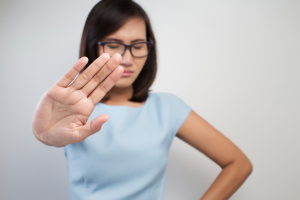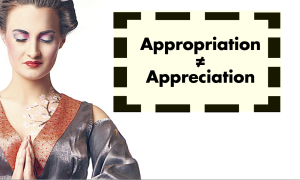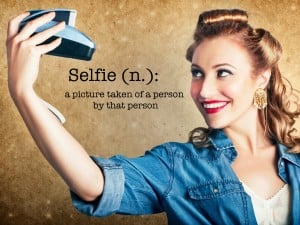
Source: Girlfriend Club
For better or worse, the selfie has undeniably cemented its place as a hallmark of modern pop culture.
The Oxford Dictionary even declared “selfie” as word of the year, much to the dismay of many. Everyone from the president to the Pope has taken part in the selfie phenomenon.
Unsurprisingly, there’s no shortage of outcries from those who believe that selfies are emblematic of our collective cultural decay in a world oversaturated by social media. After all, they argue, does the world really need to see 10 photos of you posing in the mirror of a public bathroom?
In particular, these complaints feed off of the concern that selfies are the pinnacle of the passive narcissism and self-indulgence facilitated by social media. More than ever, the public perception of Gen Y seems to be a roving gang of Starbucks drinkers hardwired to their Instagram accounts.
However, it’s not a coincidence that many of the unsavory personality traits associated with a selfie obsession – being superficial, vain, lazy, or desperate – are also commonly used as misogynistic insults against young girls.
You may think selfies are silly, but they actually reveal a lot about society’s continued tempestuous relationship with feminism.
Why Take a Selfie?
To the outside observer, it can be difficult to understand the point of a selfie. Selfies are usually a very spur-of-the moment type of thing that aren’t meant to commemorate any particular special occasion.
People start to wonder why you’re taking so many pictures without any discernible sentimental value. More often than not, those who take selfies are labeled attention-seekers.
The great thing about selfies is that they can be just what the name implies: all about you.
I love taking selfies because there’s no pressure. You’re by yourself or with friends and you can take as few or as many as you like.
They are an instant confidence boost in almost any situation. Headed to work? Selfie. Did your makeup perfectly? Selfie. Procrastinating something? Selfie.
Selfies challenge the idea that you need a justification to be seen. You’re announcing that you exist in the world and are going about your day.
Strategic selfies can also change the way you perceive yourself, both literally and metaphorically. Various effects like lighting, angles, and filters can turn your selfie into a work of art.
To me, taking a selfie is like playing dress-up.
I might put on nicer clothes or do my hair, but it’s also about the psychological benefits of working through your insecurities. I look good and I know it. Your telling me I look good is going to make me feel even better.
On that note, selfies provide a sort of vehicle for raising the self-esteem of your friends as well. Instead of feeding my friends’ negativity by constantly having to reassure them about all the things that they’re not, I can like their new profile picture and compliment their appearance.
It’s simple, fast, and a subtle way of promoting positive self talk.
Selfies and Misogynistic Scrutiny
It’s the empowerment aspect of selfies that starts to make people squirm, particularly with respect to girls and women.
Think about it: We have entire industries depend on the perpetuation of women’s inferiority complexes.
Diet pills, acne cream, fashion, and pretty much the entirety of the advertising and marketing industries are just a few examples of why society has a vested economic interest in keeping girls’ self-esteem low.
I don’t mean to suggest that anything marketed toward women is inherently bad. However, the predominant message often promotes negative self-image.
The social status quo is also at stake. Girls are taught from an early age that they can only feel good about themselves through the approval of everyone else, especially men, and should be willing to change or compromise at the drop of a hat in order to achieve acceptance.
To top it off, we romanticize self-loathing in women as an indicator of extreme virtue.
Remember that One Direction song “What Makes You Beautiful?” It basically encapsulates this mentality: Girls who have low self-esteem are allegedly desirable because they’re vulnerable (read: psychologically malleable and open to influence).
There is nothing poetic about feeling uncomfortable in your own skin, and we need to stop encouraging girls to strive for that mentality.
Selfies and the Threat of Self-Esteem
Putting gender biases back in the context of the selfie debate, no sooner did selfies become popular than a massive scramble began to determine what and who was fair game for mocking.
Suddenly everyone was the selfie police. Acceptable versus unacceptable categories of selfies soon emerged.
Conveniently, the selfie characteristics that were seen as bad or laughable, such as the peace sign or notorious duck face, tend to be more associated with girls.
The Internet thus found another way to indulge in one of the few widely accepted forms of bullying – making fun of the supposed stupidity of teen girls.
Teen girls are subjected to an exceptional amount of bullshit when it comes to getting picked on. They’re written off as stupid, over-emotional, and unpredictable.
It’s essentially a concentrated crash course in sexism, but most significantly, it teaches them to always anticipate and even accept a certain degree of misogyny.
It’s a very methodical, slow erosion of women’s sense of autonomy.
We’re conditioned to believe that external validation is a necessary substitute for self-confidence. Furthermore, having any positivity toward yourself is deeply stigmatized, policed by accusations of narcissism and superficiality.
The real anxiety with girls and selfies is that selfies might provide girls with the means to create their own positive image of themselves, thereby severely diluting the impact of outside opinion.
If your confidence comes from within, you can’t be controlled as easily.
While there are people who claim that the selfie is little more than a desperate cry for attention, the alternative of girls using selfies as an expression of independence is far more threatening.
Selfies as a Tool of Self-Love
Ultimately, selfies don’t have to be about likes or comments. Sure, everyone enjoys a bit of admiration, but it’s also about your relationship with yourself.
You don’t have to apologize for noticing yourself. Drink yourself in. Celebrate yourself. Never feel guilty for announcing your presence. You deserve to fill up space.
Try to integrate selfies into your self-care routine. If you’re feeling down, put on your favorite outfit, attempt a new hairstyle, or just make a funny face. Do whatever feels right.
Once you take a picture, write down five compliments about your appearance. If your impulse is to gravitate towards the negative, think about yourself as a stranger.
You wouldn’t insult a stranger for no reason, so treat yourself with the same kindness and unbiased perspective.
And who really cares if people say it’s pointless or try to bring you down with negativity? All that matters is that it makes you happy. Pleasure gives even the most frivolous things purpose.
Selfies can be radical. Whether you’re documenting your strong hair game or just trying to pass the time, it’s your acknowledgement that you’re here and you’re pretty damn awesome.
It takes a lot of bravery to post a selfie, so you should be congratulated regardless.
Remember that it’s always okay to love yourself and feel proud of yourself. I don’t care if you stare at your reflection in the mirror for an hour, as long as you’re confident.
We need to start teaching girls that confidence is not a sign of vanity, but rather a marker of healthy self-perception and positive thinking.
Break out your camera and start snapping. Embrace yourself with your selfie.
[do_widget id=”text-101″]
Want to discuss this further? Login to our online forum and start a post! If you’re not already registered as a forum user, please register first here.
Erin Tatum is a Contributing Writer at Everyday Feminism. She’s a feminist, queer theory lover, and television enthusiast living in Pennsylvania. She is particularly interested in examining the representation of marginalized identities in media. In addition to Everyday Feminism, she’s also a weekly contributor to Bitch Flicks. Follow her on Twitter @ErinTatum91 and read her articles here.
Search our 3000+ articles!
Read our articles about:
Our online racial justice training
Used by hundreds of universities, non-profits, and businesses.
Click to learn more





